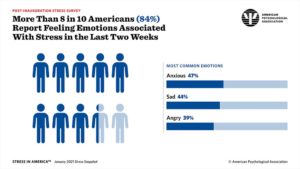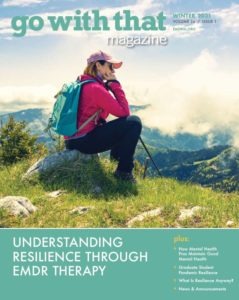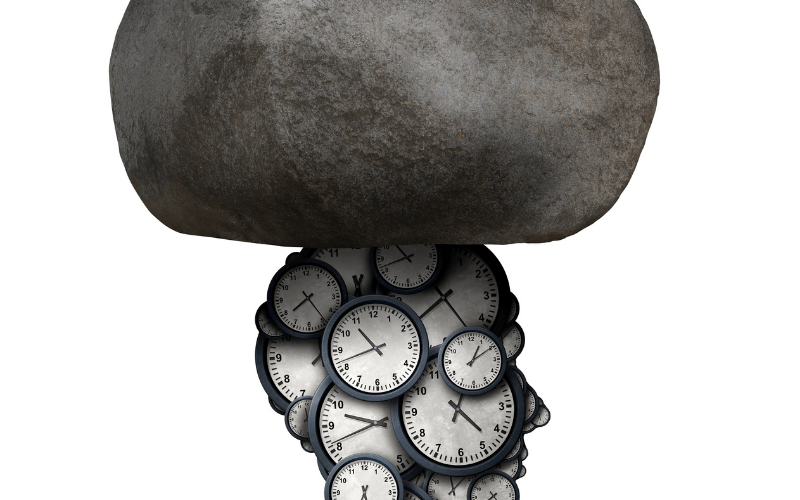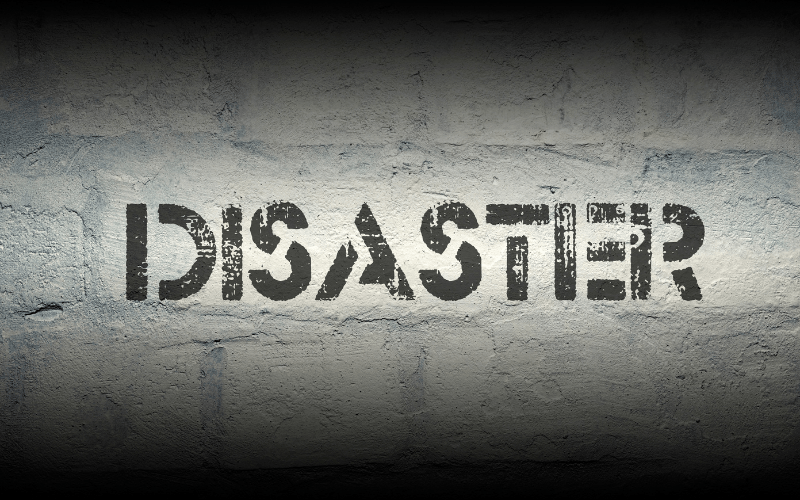April is Stress Awareness Month. Stress is a natural reaction that we experience when there is danger around us, or when we perceive that there might be danger around us. Stress affects our brains and our bodies by activating our sympathetic nervous system, which functions as a way for our bodies to protect us from danger. Even when we know we aren’t in danger, this body reaction can make it difficult to fully believe we will be okay. Stress is affecting people more than ever before. According to the American Psychological Association’s Stress in America survey in January 2021, more than 84% of Americans reported feeling emotions associated with stress in the last two weeks. Not surprisingly, this same survey conducted in 2020 revealed that COVID-19 raised stress levels in many ways. APA’s 2020 Stress in America Survey noted significant COVID-19 stressors as parenting and education stress both for parents and children, communities of color facing the disproportionate impact of COVID and discrimination, government response to the health crisis, and political, economic, and work factors. Many of us have felt the stress of isolation and fear of the unknown in the last year, however, Generation Z, in particular, has felt the fallout of facing adulthood full of questions. Many other countries are seeing similar stress impacts. UK’s Stress Management Society reports that 74% of UK adults have felt overwhelming stress at some point in the last year.
the American Psychological Association’s Stress in America survey in January 2021, more than 84% of Americans reported feeling emotions associated with stress in the last two weeks. Not surprisingly, this same survey conducted in 2020 revealed that COVID-19 raised stress levels in many ways. APA’s 2020 Stress in America Survey noted significant COVID-19 stressors as parenting and education stress both for parents and children, communities of color facing the disproportionate impact of COVID and discrimination, government response to the health crisis, and political, economic, and work factors. Many of us have felt the stress of isolation and fear of the unknown in the last year, however, Generation Z, in particular, has felt the fallout of facing adulthood full of questions. Many other countries are seeing similar stress impacts. UK’s Stress Management Society reports that 74% of UK adults have felt overwhelming stress at some point in the last year.
So we know we are stressed, what can we do about it? There are many answers depending on where you look. Most revolve around finding calm, connecting to others, feeling agency and choice, being grateful, and taking care of the physical body with sleep and exercise. Check out our previous blog post: 10 Trauma-Informed Ways to Break Your Stress Response.
Intertwined with the experience of stress is the experience of resilience. It is ironic that if we did not experience stress, we would not experience resilience – the ability to adapt to and grow from challenging experiences. EMDR therapists are familiar with this landscape of stress and resilience as they work with clients to process traumatic events and guide the healing process. The Winter 2021 EMDRIA Go With That Magazine™️ is all about resilience.
Enhancing Resilience with EMDR Therapy
Mark Nickerson, LICSW, highlights the role of the foundational model behind EMDR therapy – Adaptive Information Processing (AIP) model – in creating hope for resiliency from trauma. He writes:

- “As EMDR therapists, an important question is ‘How can we understand and support our client’s resiliency?’ A fundamental tenet of the Adaptive Information Processing (AIP) model that informs the EMDR approach is trust in the human body and brain’s innate capacity. The human brain is continuously processing current and past experiences and integrating this information into existing innate and learned neurological structures, all in the service of meeting a range of human needs and wants. That is a lot to do! And yet, given a reasonable chance, the brain devises a host of coping strategies for people to handle what they can and choose to, work around what they cannot, and try to figure out how to face the challenges that lie in between.”
Click here to access Nickerson’s article ‘Enhancing Resilience with EMDR Therapy’
*EMDRIA members have access to all articles in the Go With That Magazine™️, which comes out quarterly.
Back to Focal Point Blog Homepage
Additional Resources
If you are a therapist interested in the EMDR training:
- Learn more about EMDR at the EMDRIA Library
- Learn more about EMDR Training
- Search for an EMDR Training Provider
- Check out our EMDR Training FAQ
If you are EMDR trained:
- Check out EMDRIA’s Let’s Talk EMDR Podcast
- Check out the EMDRIA Focal Point Blog
- Learn more about EMDRIA membership
- Search for Continuing Education opportunities
If you are an EMDRIA Member:
Date
April 9, 2021
Practice & Methods
Resilience





